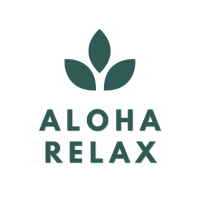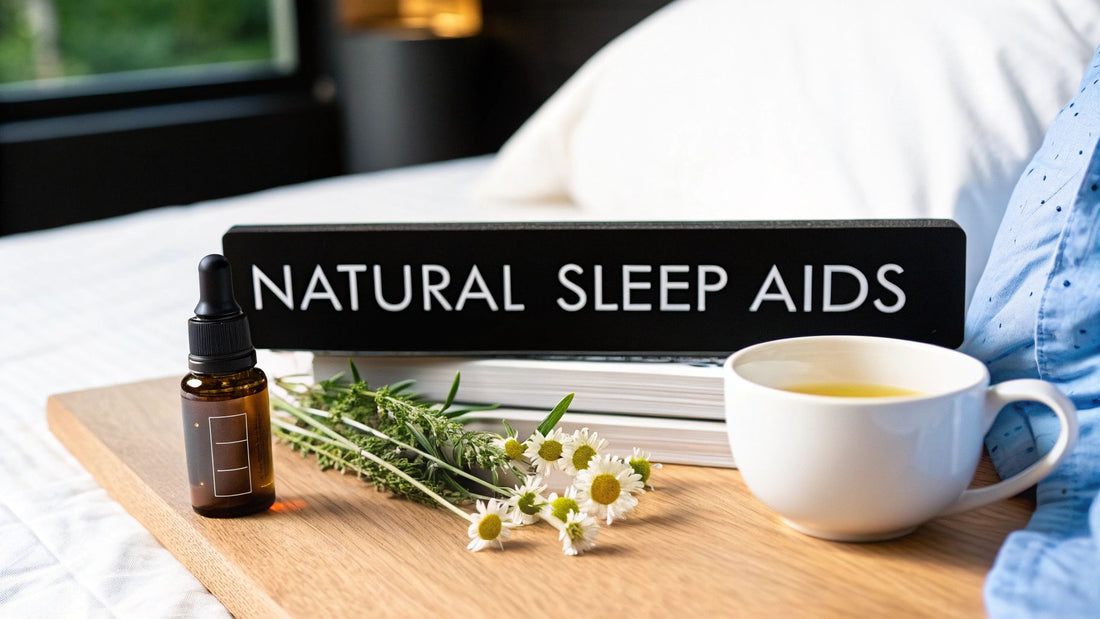Trouble Sleeping? Explore Nature's Remedies
Struggling to get a good night's sleep? You're not alone. Many turn to prescription medications, but if you're seeking long-term solutions, natural sleep aids may be a better choice. This article explores eight natural remedies to improve sleep quality, including melatonin, valerian root, chamomile, lavender, magnesium, glycine, L-theanine, and passionflower. Discover how these natural sleep aids can help you fall asleep faster, stay asleep longer, and wake up refreshed—without relying on potentially habit-forming medications.
1. Melatonin
Melatonin, a hormone naturally produced by the pineal gland in the brain, plays a crucial role in regulating the sleep-wake cycle. As a natural sleep aid, supplemental melatonin mimics this natural process, signaling to the body that it's time to sleep. This makes it a popular choice for those struggling with insomnia and looking for natural solutions to improve their sleep quality. It works by interacting with melatonin receptors in the brain, promoting relaxation and sleepiness. As darkness falls, melatonin levels naturally rise, preparing the body for sleep. Conversely, light exposure suppresses melatonin production, promoting wakefulness.

Melatonin supplements come in various forms – tablets, capsules, gummies, and liquids – and dosages typically range from 0.5mg to 10mg. Its short half-life (1-2 hours) means it's processed quickly by the body, reducing the risk of lingering morning grogginess often associated with prescription sleep medications. Furthermore, unlike many prescription options, melatonin is considered non-habit forming. This makes it an attractive option for those seeking natural, non-addictive sleep support. Learn more about Melatonin
Melatonin's efficacy is particularly notable in treating circadian rhythm disorders, making it beneficial for shift workers and individuals experiencing jet lag. Its over-the-counter availability and generally safe profile for short-term use further contribute to its popularity. Brands like Nature Made (USP verified for quality and purity), Natrol (known for time-release formulations), and NOW Foods (offering various potencies and combinations) provide consumers with a range of options.
While melatonin offers several benefits, it’s important to be aware of potential drawbacks. Some users report experiencing vivid dreams or nightmares. Others may experience headaches, dizziness, or nausea. Furthermore, because melatonin is not regulated by the FDA as a pharmaceutical, quality can vary between brands. It's crucial to choose reputable manufacturers. It is also important to note that melatonin may interact with certain medications, including blood thinners and immunosuppressants. Finally, while considered safe for short-term use, long-term safety hasn't been conclusively established.
When and Why to Use Melatonin:
Melatonin can be a useful tool for addressing short-term sleep difficulties related to:
- Jet lag: Resetting your sleep cycle after crossing time zones.
- Shift work: Adjusting to irregular sleep schedules.
- Occasional insomnia: Falling asleep more easily on nights when sleep is elusive.
Tips for Effective Use:
- Start low and go slow: Begin with the lowest effective dose (0.5-1mg) and gradually increase if needed.
- Time it right: Take melatonin 30-60 minutes before your intended bedtime.
- Optimize your sleep environment: Create a dark, quiet, and cool room to support natural melatonin production.
- Limit screen time before bed: Blue light from electronic devices inhibits melatonin production.
- Consult your doctor: Especially if you have underlying health conditions, are taking other medications, or are considering long-term use.
Melatonin deserves its place on this list of natural sleep aids because of its widespread availability, demonstrated efficacy for certain sleep disorders, and generally safe profile for short-term use. However, remember to use it responsibly and consult with a healthcare professional if you have any concerns. By understanding its benefits, drawbacks, and proper usage, you can leverage melatonin’s potential to promote restful sleep naturally.
2. Valerian Root
Valerian root ( Valeriana officinalis) is a powerful natural sleep aid derived from a flowering plant native to Europe and Asia. Its use dates back to ancient Greece and Rome, where it was prized for its calming and sleep-promoting properties. Valerian root contains compounds, including valerenic acid, that are thought to increase levels of gamma-aminobutyric acid (GABA) in the brain. GABA is a neurotransmitter that helps regulate nerve cells and calm nervous system activity, reducing anxiety and making it easier to fall asleep. This makes valerian root a valuable option for those seeking natural solutions for insomnia and other sleep difficulties.
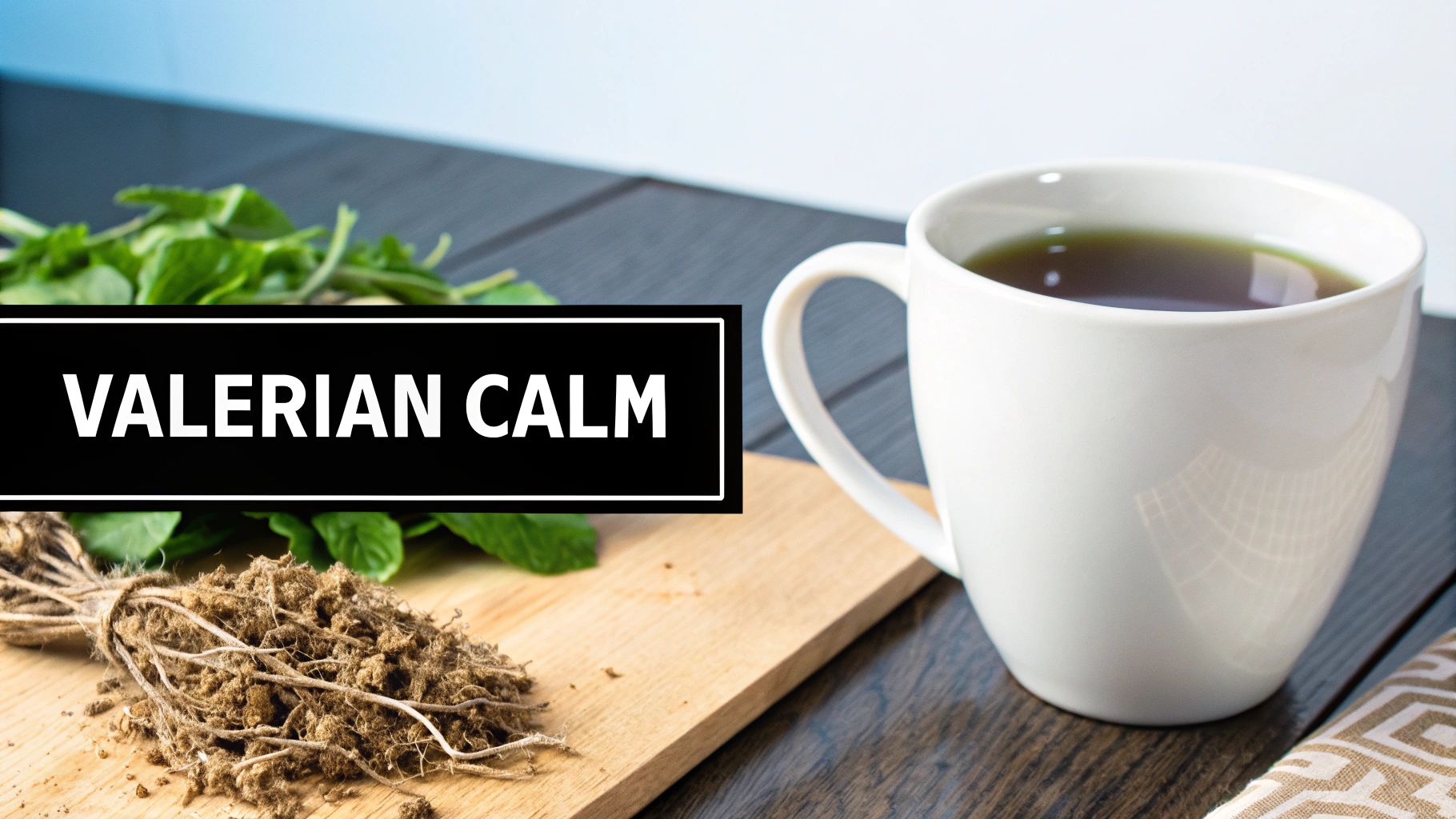
Valerian root earns its place on this list of natural sleep aids due to its long history of use, relatively safe profile, and potential to improve both sleep quality and sleep latency (the time it takes to fall asleep). It’s a versatile option, available as tea, tinctures, capsules, and tablets, catering to various preferences. Products are typically standardized to valerenic acid content to ensure consistent potency. While its effectiveness is supported by traditional use and some scientific studies, research shows mixed results regarding its efficacy, highlighting the importance of individual responses to natural remedies.
Features and Benefits:
- Available in various forms: tea, tincture, capsules, and tablets.
- May improve both sleep quality and reduce time to fall asleep.
- Can also alleviate anxiety-related sleep disturbances.
- Generally Recognized as Safe (GRAS) by the FDA.
- Non-habit forming with minimal risk of dependency.
- Can be combined with other calming herbs like lemon balm or hops.
Pros and Cons:
Pros:
- May improve both sleep quality and sleep latency.
- Generally recognized as safe (GRAS).
- Non-habit forming.
- May help with anxiety-related sleep issues.
- Combinable with other calming herbs.
Cons:
- Strong, unpleasant smell and taste.
- May cause morning drowsiness in some individuals.
- Can cause vivid dreams.
- Potential interaction with medications metabolized by the liver.
- Research shows mixed results on efficacy.
Examples of Valerian Root Products:
- Nature's Way Valerian Root: A popular standardized extract for sleep support.
- Traditional Medicinals Organic Nighty Night Valerian Tea: Combines valerian with other calming herbs.
- Gaia Herbs Sleep & Relax: A blend containing concentrated valerian extract and other herbs.
Tips for Using Valerian Root:
- Dosage: A typical dose ranges from 300-900mg of extract taken shortly before bedtime.
- Tea Preparation: For tea, steep covered for 10-15 minutes to retain the beneficial volatile oils.
- Routine: Combine valerian root with a regular bedtime routine to enhance its effectiveness.
- Avoid Alcohol and Sedatives: Do not combine valerian root with alcohol or sedative medications.
- Surgery Precautions: Discontinue use two weeks before surgery due to potential interactions with anesthesia.
Historical Use and Popularization:
- Hippocrates: Documented valerian root's properties for insomnia in ancient Greece.
- Commission E (Germany): Approved its use for "restlessness and sleeping disorders."
- Dr. Andrew Weil: Recommends valerian root as part of integrative medicine approaches to insomnia.
When and why to use valerian root: Consider valerian root as a natural sleep aid if you're struggling with mild to moderate insomnia, difficulty falling asleep, or anxiety-related sleep disturbances. It's particularly suitable for those seeking non-habit-forming alternatives to conventional sleep medications. Remember that effects may take 2-4 weeks of regular use to become noticeable.
3. Chamomile
Chamomile, a natural sleep aid derived from daisy-like flowers of the Asteraceae plant family, has been soothing people to sleep for thousands of years. Its two most common varieties, German chamomile (Matricaria recutita) and Roman chamomile (Chamaemelum nobile), both contain apigenin. This antioxidant binds to specific receptors in your brain, potentially reducing anxiety and promoting sleep. While its effects are generally mild compared to pharmaceutical sleep aids, its gentle action and minimal side effects make it a popular choice for those seeking natural remedies for occasional sleeplessness.
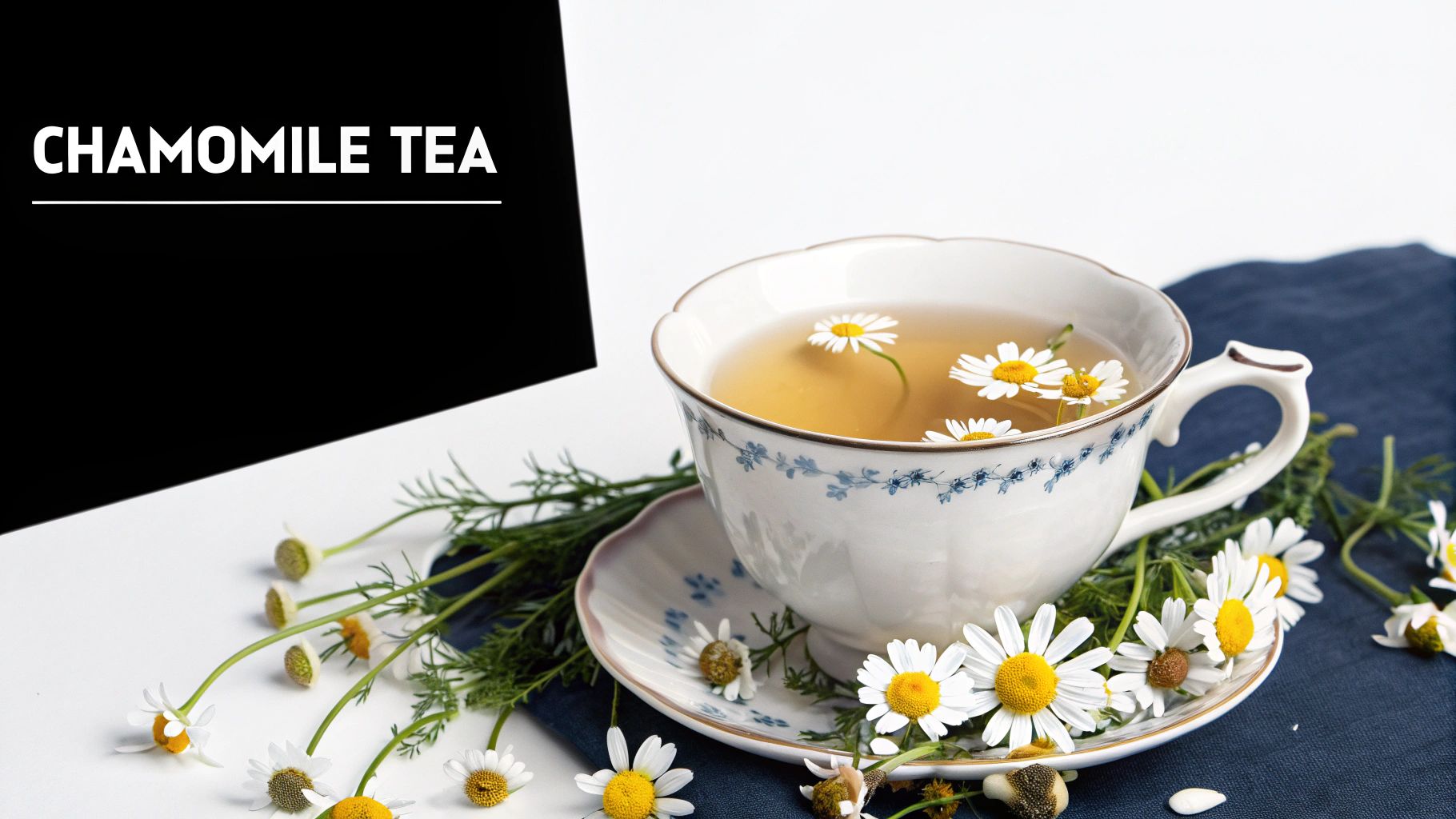
Chamomile is most commonly enjoyed as a tea, offering a mild, pleasant apple-like flavor. However, it's also available as an essential oil, extract, in capsules, and even topical applications. The flavonoids, including apigenin, are believed to be responsible for its sedative effects. This makes chamomile a viable option for individuals seeking natural sleep aids as part of a healthy sleep hygiene routine.
Features and Benefits:
- Versatile Consumption: Enjoyable as a tea, but also available as an oil, extract, capsules, and in topical creams.
- Gentle Sedation: Provides mild relaxation without the next-day drowsiness often associated with stronger sleep aids.
- Additional Health Benefits: Offers anti-inflammatory and antioxidant properties, contributing to overall wellness.
- Suitable for Daily Use: Can be incorporated into a nightly routine to promote relaxation and better sleep hygiene.
- Generally Safe: Well-tolerated by most people, including children (in appropriate doses).
Pros:
- Extremely well-tolerated with minimal side effects.
- Provides gentle, mild sedation without strong drowsiness.
- Offers additional benefits, including anti-inflammatory and antioxidant properties.
- Suitable for daily use and as part of healthy sleep hygiene routines.
- Safe for most populations, including children (in appropriate doses).
Cons:
- Effects are generally mild compared to stronger sleep aids.
- Limited clinical evidence for significant sleep improvement.
- Potential allergic reactions in individuals sensitive to plants in the daisy family.
- May interact with blood thinners due to natural coumarin content.
- Consistency of active compounds varies between preparations.
Examples of Chamomile Products:
- Traditional Medicinals Organic Chamomile Tea: A widely available and popular choice for a soothing bedtime beverage.
- Celestial Seasonings Sleepytime Tea: A blend of chamomile with other herbs designed to promote relaxation and sleep.
- The Honest Company's Dreamy Lavender Bath Products: Combines the calming effects of chamomile with lavender for a relaxing bath experience.
Tips for Using Chamomile for Sleep:
- Optimal Timing: Drink 1-2 cups of chamomile tea 30-45 minutes before bedtime.
- Preserve the Goodness: Cover your tea while steeping to prevent volatile compounds from escaping.
- Enhance Relaxation: Pair chamomile tea with other relaxation techniques like deep breathing or meditation.
- Sweeten the Deal: Add honey (optional) which may enhance sleep benefits.
- Children's Dosage: For children, dilute tea or use specialized children's formulations.
Chamomile's Place in History:
Chamomile's use as a sleep aid is deeply rooted in history. From Peter Rabbit sipping chamomile tea in Beatrix Potter's stories to ancient Egyptians dedicating the herb to their sun god Ra for its healing properties, its calming effects have been recognized across cultures. Celestial Seasonings' Sleepytime Tea, introduced in 1972, further popularized chamomile as a household name for sleep. Whether you're struggling with insomnia, jet lag, or simply seeking a gentle way to unwind before bed, chamomile offers a natural and time-honored approach to improving your sleep.
4. Lavender
Lavender ( Lavandula angustifolia ) stands out among natural sleep aids for its calming and sedative properties, making it a popular choice for those seeking better sleep. This fragrant herb from the mint family contains linalool and linalyl acetate, compounds believed to influence the limbic system—specifically the amygdala and hippocampus—brain regions crucial for emotional regulation and sleep. This influence can lead to both anxiolytic (anti-anxiety) and sedative effects, addressing a common underlying cause of sleep disturbances.
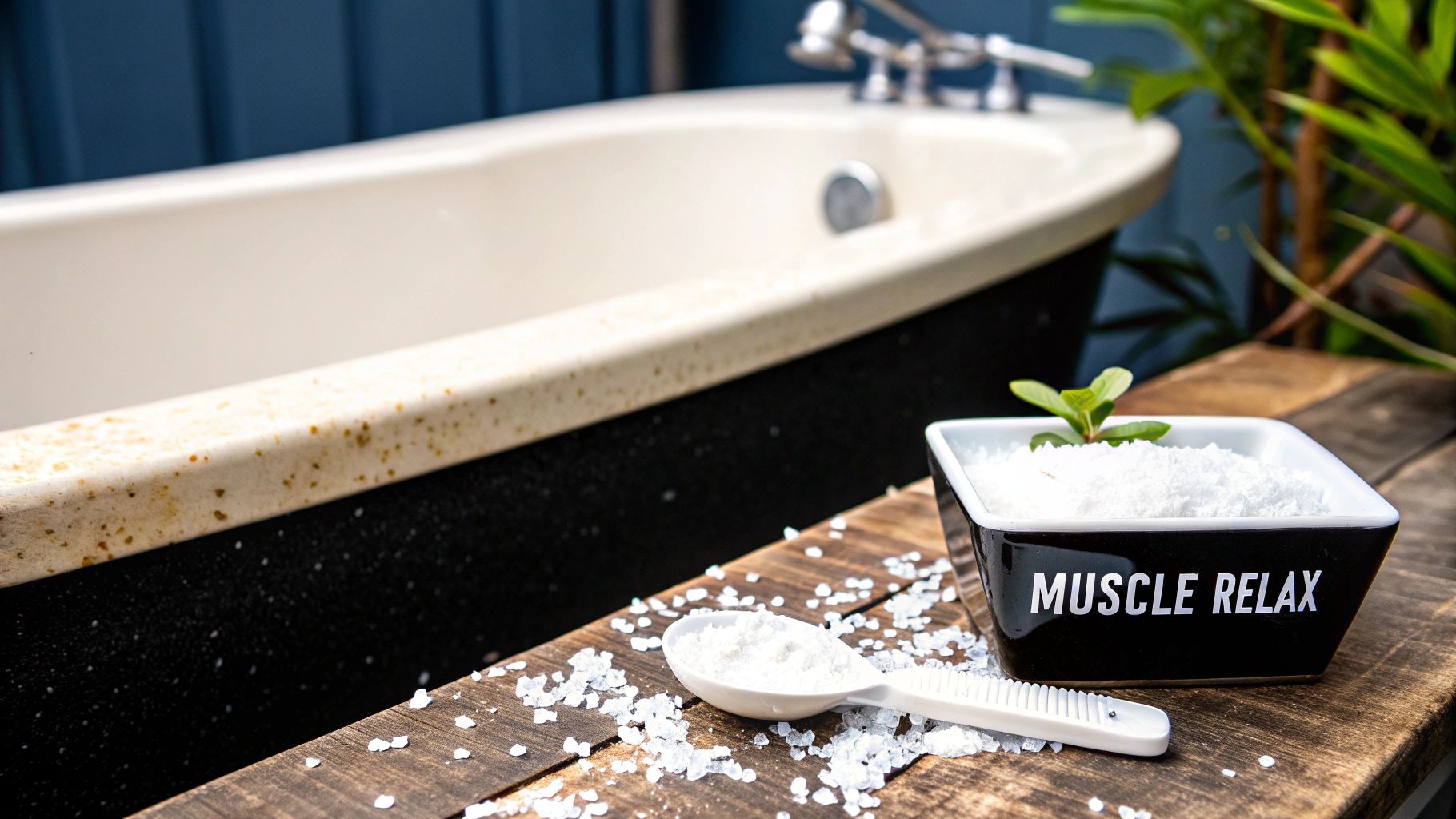
Lavender's versatility is a key feature. While primarily used as an essential oil for aromatherapy, it's also available in teas, extracts, and oral supplements like Silexan (often branded as CalmAid or Lavela). The characteristic floral scent itself has proven psychophysiological effects, working through olfactory pathways. When ingested orally, lavender's components have direct biochemical effects. This dual action pathway contributes to its effectiveness as a natural sleep aid.
Pros:
- Research-backed: Significant research supports lavender's efficacy for anxiety, a frequent contributor to sleep problems.
- Non-habit forming: Unlike some sleep aids, lavender carries minimal risk of dependency.
- Improved sleep quality: It can promote better sleep without causing morning grogginess.
- Easy integration: Lavender can be seamlessly incorporated into bedtime routines.
- Pleasant aroma: The enjoyable scent encourages consistent use.
Cons:
- Scent sensitivity: Some individuals find the aroma overpowering or experience headaches.
- Quality variations: Essential oil quality can differ significantly between brands.
- Skin irritation: Undiluted oil may irritate the skin upon direct application.
- Medication interactions: Potential interactions exist with certain sedative medications.
- Digestive issues: Oral supplements may cause mild digestive upset in some people.
Examples and Tips:
- Silexan: This standardized lavender oil preparation has clinical studies backing its use for anxiety and sleep. For clinical-grade results, consider a daily dose of 80mg.
- Essential Oil Brands: Companies like Doterra and Young Living offer popular lavender oil products. Place a few drops on your pillow or in a diffuser before bed. You can also add lavender bath salts to a warm bath 1-2 hours before sleep, or apply diluted lavender oil (mixed with a carrier oil like jojoba or almond oil) to your temples or wrists.
- Combination Products: ThisWorks Deep Sleep Pillow Spray blends lavender with other sleep-promoting essential oils.
- Herbal Teas: Try combining lavender tea with other calming herbs like chamomile.
Lavender's historical use underscores its enduring appeal. From its traditional use in the Provence region of France, known for its expansive lavender fields, to its reported use by the Royal Family of England in their gardens and linens, and its modern-day advocacy by integrative medicine physicians like Dr. Tieraona Low Dog, lavender's place among natural sleep aids remains secure. It's a valuable option for adults struggling with insomnia, shift workers, frequent travelers, or anyone prioritizing relaxation and better sleep. Learn more about Lavender and how it can contribute to creating a perfect sleep environment.
5. Magnesium
Magnesium, a vital mineral and electrolyte, deserves a prominent spot on the list of natural sleep aids due to its significant role in promoting restful sleep and addressing an extremely common nutritional deficiency. It participates in over 300 enzymatic reactions within the body, impacting various aspects of health, but its influence on sleep is particularly noteworthy. Magnesium helps regulate neurotransmitters that calm the nervous system and may influence sleep-regulating hormones, contributing to a more peaceful night’s rest. Learn more about Magnesium
One of the key ways magnesium aids sleep is by binding to GABA receptors. These are the same receptors targeted by prescription sleep medications like Ambien, but magnesium acts in a gentler, non-addictive manner. This makes it an appealing alternative for those seeking natural sleep aids and wanting to avoid potential dependencies. Furthermore, magnesium acts as an essential cofactor for enzymes that regulate our internal "cellular clocks," further promoting healthy sleep-wake cycles. Its role in muscle relaxation also helps alleviate physical tension that can often disrupt sleep.
Magnesium is available in various forms, each with its own bioavailability and effects on the body. These include magnesium glycinate, citrate, threonate, and chloride. It’s also readily absorbed transdermally through Epsom salt baths or magnesium oil, offering a relaxing pre-sleep ritual. For example, Natural Vitality's Calm, a popular magnesium citrate powder, is easily mixed with water for consumption. Ancient Minerals offers topical magnesium oil and bath flakes for transdermal application, while Life Extension Neuro-Mag features magnesium L-threonate, which may have enhanced brain penetration. Ancient Minerals, in fact, pioneered many of the topical magnesium products available today. Experts like Dr. Carolyn Dean, author of "The Magnesium Miracle," and Dr. Mark Hyman, a prominent figure in functional medicine, champion the benefits of magnesium for sleep.
Pros of using magnesium as a natural sleep aid:
- Addresses a widespread nutritional deficiency (an estimated 50% of Americans consume inadequate magnesium).
- Offers multiple health benefits beyond sleep, including cardiovascular, metabolic, and neurological support.
- Generally safe when taken in appropriate doses.
- Non-habit forming and suitable for long-term use.
- May be particularly effective for those with restless leg syndrome or muscle cramping that disrupts sleep.
Cons to consider:
- Can cause digestive upset and loose stools, especially in certain forms like oxide and citrate.
- May interact with certain medications, including antibiotics and diuretics.
- Requires consistent use for benefits rather than serving as an occasional sleep aid.
- Not all forms cross the blood-brain barrier effectively for optimal neurological effects.
- Some forms have poor absorption and bioavailability.
Tips for incorporating magnesium into your sleep routine:
- Try magnesium glycinate for sleep, as it boasts high bioavailability and minimal digestive side effects.
- The optimal dosage typically ranges from 200-400mg of elemental magnesium daily.
- Take magnesium 1-2 hours before bedtime.
- Combine magnesium supplementation with a warm bath for enhanced relaxation.
- Start with lower doses and gradually increase to avoid digestive discomfort.
Whether you're an adult struggling with insomnia, a shift worker adjusting to unusual sleep schedules, a frequent traveler battling jet lag, or simply a health enthusiast seeking better recovery and relaxation, magnesium may be a valuable addition to your natural sleep aid toolkit. It offers a gentle yet effective approach to improving sleep quality and overall well-being.
6. Glycine: A Sweet Solution for Natural Sleep?
Struggling to drift off? Tossing and turning all night? Glycine, a naturally occurring amino acid, might be the gentle nudge your sleep routine needs. As a natural sleep aid, glycine offers a promising approach to improving sleep quality without the grogginess often associated with pharmaceutical sleep aids. It deserves a place on this list due to its impressive safety profile, ease of use, and growing body of research supporting its effectiveness.
Glycine works its magic in a few key ways. Primarily, it acts as an inhibitory neurotransmitter in the central nervous system, promoting relaxation and calming the mind. Think of it as a gentle "off" switch for your brain. But its benefits don't stop there. Glycine also plays a crucial role in regulating body temperature. By widening blood vessels in the extremities, it helps release heat, triggering the natural drop in core body temperature that signals your body it's time for sleep. Furthermore, research suggests glycine may directly influence circadian rhythms within the suprachiasmatic nucleus—the brain's master clock.
One of glycine's most appealing features is its availability. While naturally found in protein-rich foods, supplemental amounts provide a more concentrated dose for noticeable sleep benefits. Available as a powder or in capsules, glycine is remarkably versatile. Its naturally sweet taste makes it easy to mix into water or other beverages before bed. Critically, glycine effectively crosses the blood-brain barrier, allowing it to exert its calming influence directly where it's needed most.
Pros of using glycine for sleep:
- May improve subjective sleep quality without causing daytime drowsiness.
- Research suggests it can reduce the time it takes to fall asleep.
- Can improve performance on memory tasks following sleep restriction.
- Very good safety profile with minimal side effects.
- May help with the subjective feeling of fatigue after sleep disturbance.
Cons to consider:
- Research is still emerging compared to more established sleep aids.
- May not be strong enough for severe insomnia.
- Optimal dosing protocols are not firmly established.
- May interact with some medications (particularly clozapine).
- Limited long-term studies on continuous use.
Actionable Tips for Using Glycine:
- Dosage: A typical effective dose is 3 grams taken about 1 hour before bedtime.
- Preparation: Mix the powder with water (it has a slightly sweet taste) or take capsules.
- Synergy: Pairs well with magnesium glycinate for enhanced effects.
- Consistency: Most effective when used as part of a regular sleep schedule.
- Targeted Use: May be particularly helpful for those with sleep issues related to temperature regulation.
Examples of Glycine Supplements:
- NOW Foods Glycine Powder is a popular pure glycine supplement.
- Life Extension Glycine provides capsules for those who prefer not to use powder.
- Some sports nutrition companies offer glycine as part of sleep recovery formulations.
Who Should Consider Glycine?
Glycine can be a valuable tool for a variety of individuals seeking natural sleep solutions:
- Adults struggling with insomnia and poor sleep quality
- Shift workers sleeping during daytime hours
- Frequent travelers dealing with jet lag and inconsistent sleep environments
- Health and wellness enthusiasts focused on recovery and relaxation
Popularity and Research:
Glycine's sleep-enhancing properties have been highlighted by several influential figures, including Dr. Catherine Shanahan, who recommends it in her nutritional approaches. Groundbreaking research from Japanese researchers at the University of Tsukuba has further solidified glycine's role in sleep regulation. Additionally, biohacker Dave Asprey has popularized glycine for sleep quality improvement among his followers.
While more research is always welcome, the existing evidence suggests that glycine offers a safe and potentially effective way to naturally improve sleep quality. By incorporating it into a holistic sleep hygiene routine, you may find yourself enjoying more restful nights and more energized days.
7. L-Theanine: A Natural Sleep Aid for Calm and Restful Nights
Struggling to fall asleep or stay asleep? Searching for natural sleep aids that won't leave you feeling groggy? L-theanine might be the answer. This unique amino acid, found primarily in green tea, offers a gentle yet effective approach to promoting relaxation and improving sleep quality without the unwanted side effects of many sleep medications. Its growing popularity stems from its ability to encourage a state of calm alertness, making it a valuable tool for those seeking natural solutions for better sleep.
L-theanine works by influencing brain wave activity and neurotransmitter levels. It increases alpha brain waves, which are associated with a relaxed yet focused state. Simultaneously, it boosts levels of GABA, serotonin, and dopamine – neurotransmitters crucial for mood regulation, alertness, and sleep. Furthermore, L-theanine helps reduce the activity of excitatory neurotransmitters linked to stress and anxiety, creating a calming effect that facilitates sleep onset. Interestingly, it's structurally similar to glutamate, an excitatory neurotransmitter, allowing it to bind to glutamate receptors without activating them, thus modulating glutamate's excitatory effects. Crucially, L-theanine crosses the blood-brain barrier quickly, typically within 30-45 minutes of consumption, meaning its relaxing effects can be felt relatively soon after ingestion.
Why L-Theanine Deserves a Spot on the List of Natural Sleep Aids:
L-theanine stands out amongst other natural sleep aids due to its unique combination of benefits. It promotes relaxation without causing drowsiness, making it suitable for both daytime anxiety relief and nighttime sleep support. Unlike some sleep aids, L-theanine is non-habit forming and doesn't appear to lead to tolerance development. Moreover, it may improve overall sleep quality, not just sleep onset, leaving you feeling more refreshed upon waking. Its well-researched safety profile and minimal side effects further solidify its place as a valuable natural sleep aid.
Features and Benefits:
- Promotes Relaxation Without Sedation: Enjoy a sense of calm without feeling drowsy or impaired.
- Improves Sleep Quality: Experience deeper, more restful sleep, not just faster sleep onset.
- Reduces Stress and Anxiety: L-theanine calms the mind by modulating excitatory neurotransmitters.
- Non-Habit Forming: Use it as needed without worrying about developing a dependence.
- Well-Researched Safety Profile: Enjoy peace of mind knowing L-theanine has minimal side effects.
Pros and Cons:
Pros:
- Promotes a state of calm relaxation that facilitates sleep onset.
- Does not cause drowsiness, so can be used during the day for anxiety or in the evening for sleep.
- Well-researched safety profile with minimal side effects.
- May improve sleep quality rather than just aiding sleep onset.
- Non-habit forming and not associated with tolerance development.
Cons:
- Effects are subtle compared to stronger sleep medications.
- More effective for stress-related sleep issues than other types of insomnia.
- May lower blood pressure, requiring caution in those with hypotension.
- Optimal dosing varies significantly between individuals.
- Quality varies between supplement brands.
Examples and Tips for Using L-Theanine:
- Suntheanine®: Look for supplements containing this patented, pure form of L-theanine for consistent quality, like Sports Research L-Theanine with Suntheanine.
- Combination Products: Four Sigmatic's Mushroom Hot Cacao with Reishi combines L-theanine with relaxing mushrooms for a synergistic effect.
- Dosage: Typical doses range from 100-400mg taken 30-60 minutes before bedtime. For daytime anxiety relief, 100-200mg is a common starting point.
- Synergistic Effects: Combine L-theanine with magnesium or glycine for enhanced relaxation and sleep support.
- Food Interactions: L-theanine may be more effective when taken away from high-protein foods.
When and Why to Use L-Theanine:
Consider L-theanine if you experience difficulty falling asleep due to racing thoughts or anxiety. It’s also a good option if you wake up frequently during the night or want to improve your overall sleep quality. Because it doesn't cause drowsiness, L-theanine can be helpful for daytime stress management without impacting your alertness.
L-theanine represents a promising natural sleep aid for those seeking a gentle yet effective approach to improving sleep. Its ability to promote relaxation without sedation makes it a versatile option for managing both stress and sleep difficulties. Remember to consult with a healthcare professional before starting any new supplement, especially if you have underlying health conditions or are taking other medications.
8. Passionflower: A Gentle Embrace for Restful Sleep
Passionflower ( Passiflora incarnata) earns its place among natural sleep aids for its calming and sleep-inducing properties, offering a gentle approach to improving sleep quality. This climbing vine, native to the Americas, has a long history of traditional use for anxiety, insomnia, and nervousness. Its effectiveness lies in its unique interaction with the brain's chemistry, making it a valuable tool for those seeking natural sleep solutions.
How Passionflower Works:
This beautiful flower contains a rich blend of flavonoids and alkaloids, including chrysin, which interact with GABA receptors in the brain. GABA (gamma-aminobutyric acid) is a neurotransmitter that reduces brain activity, promoting relaxation and preparing the mind and body for sleep. By increasing GABA levels, passionflower creates a calming effect that can help alleviate stress-related sleep disturbances and quiet racing thoughts. It works through the GABAergic systems in the brain, similar to some pharmaceutical sleep aids, but with a milder and non-addictive profile.
Why Choose Passionflower as a Natural Sleep Aid?
For individuals seeking natural alternatives to pharmaceutical sleep aids, passionflower presents a compelling option, especially for those whose sleep issues are linked to anxiety and racing thoughts. Its gentle action and relatively low risk of side effects make it a suitable choice for many adults struggling with insomnia and poor sleep quality. It can be particularly helpful for those experiencing:
- Stress-related sleep disturbances: The anxiolytic effects can calm a busy mind and ease the transition to sleep.
- Mild to moderate insomnia: While not as potent as prescription medications, it can offer noticeable improvements in sleep quality.
- Difficulty falling asleep due to racing thoughts: The calming effect can help quiet the mind and prepare for rest.
Forms and Dosage:
Passionflower is readily available in various forms, catering to individual preferences:
- Tea: Traditional Medicinals Organic Nighty Night with Passionflower Tea is a popular option. Steep 1-2 teaspoons of dried herb in hot water for 10 minutes and enjoy 30-60 minutes before bedtime.
- Liquid Extract: Herb Pharm Passionflower Extract, made from fresh passionflower flowering tops, is a potent liquid form. Follow the manufacturer's instructions for dosage, as potency can vary significantly between brands.
- Capsules/Tablets: Nature's Way Passionflower standardized extract capsules offer a convenient and consistent dose. Typical dosages range from 300-600mg before bed.
Pros and Cons of Using Passionflower:
Pros:
- Demonstrated anxiolytic (anti-anxiety) effects
- Generally well-tolerated with few side effects
- May improve sleep quality without morning grogginess
- Non-addictive and not associated with dependence
- Long history of traditional use
Cons:
- Scientific evidence is more limited compared to some other natural sleep aids
- Effects tend to be mild to moderate
- May interact with sedative medications, MAOIs, and blood thinners
- Not recommended during pregnancy
- Quality and potency vary between products
Tips for Effective Use:
- Combine passionflower with a consistent bedtime routine for enhanced effects.
- For liquid extracts, carefully follow manufacturer's instructions.
- Consider combining with other calming herbs like valerian or lemon balm.
Historical Use and Popularization:
Passionflower's use as a natural remedy dates back centuries to Native American tribes. Its calming properties were later recognized by Spanish conquistadors, who introduced it to Europe. The German Commission E, a regulatory body, has even approved passionflower for nervous restlessness, further solidifying its reputation as a valuable natural sleep aid.
While passionflower offers a promising natural approach to improving sleep, it's essential to consult with a healthcare professional before using it, especially if you are taking other medications or are pregnant. By understanding its benefits, limitations, and proper usage, you can explore the potential of passionflower to achieve a more restful and restorative sleep.
Natural Sleep Aids: Key Features Comparison
| Item | Core Features / Characteristics | User Experience / Quality ★ | Value Proposition 💰 | Target Audience 👥 | Unique Selling Points ✨ |
|---|---|---|---|---|---|
| Melatonin | Various forms, 0.5-10mg dose, short half-life | ★★★★☆ Safe short-term, non-habit forming | 💰 Affordable, OTC widely available | 👥 Jet lag, shift workers, circadian issues | ✨ Mimics natural hormone, reduces sleep onset time |
| Valerian Root | Tea, tincture, capsules; takes 2-4 weeks | ★★★☆☆ Mixed efficacy; calming effect | 💰 Moderate, herbal option | 👥 Anxiety-related sleep problems | ✨ Anxiety + sleep aid; non-habit forming |
| Chamomile | Mostly tea; mild, apple-like flavor | ★★★☆☆ Gentle sedation, minimal side effects | 💰 Low cost, daily use friendly | 👥 General mild sleep issues, children | ✨ Anti-inflammatory + antioxidant properties |
| Lavender | Essential oil, teas, oral supplements | ★★★★☆ Enhances sleep quality, anxiety relief | 💰 Varied pricing; aromatherapy focus | 👥 Anxiety sufferers, aromatherapy users | ✨ Pleasant aroma, multiple application forms |
| Magnesium | Multiple forms; mineral, muscle relaxant | ★★★★☆ Addresses deficiency, improves sleep quality | 💰 Cost varies by form, long-term use | 👥 Those with deficiency, muscle tension | ✨ Neurotransmitter regulation; multi-benefit |
| Glycine | Powder/capsules; sweet taste, regulates temp | ★★★★☆ Improves sleep quality, no drowsiness | 💰 Affordable supplement | 👥 Sleep quality seekers, temperature regulation | ✨ Regulates core body temp, cognitive benefits |
| L-Theanine | Amino acid from tea; promotes relaxation | ★★★★☆ Calm alertness, reduces sleep latency | 💰 Mid-range, often paired with caffeine | 👥 Stress-related insomnia, daytime anxiety | ✨ Promotes calm without sedation |
| Passionflower | Tea, extract, capsules; GABAergic calming effects | ★★★☆☆ Mild-moderate; anxiolytic effects | 💰 Herbal alternative, moderate cost | 👥 Stress-related sleep issues | ✨ Long traditional use, non-addictive |
Sweet Dreams: Choosing the Right Natural Sleep Aid
Finding the right natural sleep aid can be a journey of discovery. This article explored several popular options, including melatonin, valerian root, chamomile, lavender, magnesium, glycine, L-theanine, and passionflower. Each offers unique properties and potential benefits for improving sleep quality. Remember that while these natural sleep aids can be effective, their impact varies from person to person. Identifying the root cause of your sleep challenges is key to selecting the most suitable approach.
Taking charge of your sleep health offers profound benefits – from increased energy and improved mood to enhanced cognitive function and overall well-being. Consistent, restorative sleep is essential for both physical and mental health. If you're exploring alternative methods for improving sleep, you might consider guided hypnosis for sleep, a technique that can help induce relaxation and improve sleep quality (Source: Hypnosis For - Besserer Schlaf from Hypnothera.ai). In addition to natural sleep aids, establishing a relaxing bedtime routine, optimizing your sleep environment, and practicing good sleep hygiene can significantly improve your sleep outcomes.
Prioritizing sleep isn't just about feeling rested; it's about investing in a healthier, happier you. As you embark on your journey towards better sleep, remember to consult with a healthcare professional, especially if you have persistent sleep issues or are currently taking other medications. For a supportive and calming sleep environment, explore how Aloha Relax can complement your natural sleep journey. Aloha Relax products are designed to enhance relaxation and promote restful sleep, naturally. Discover how Aloha Relax can help you achieve the peaceful slumber you deserve: Aloha Relax
